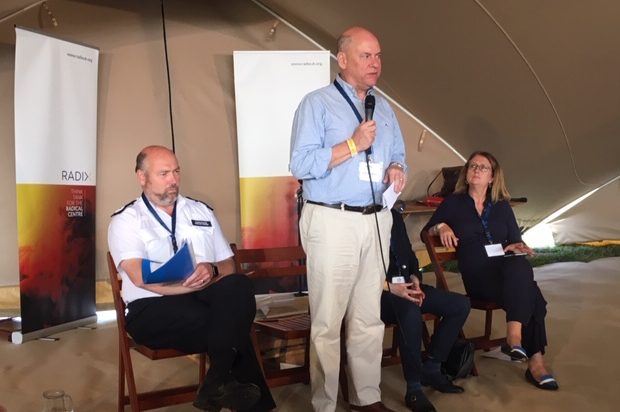
This weekend I took part in a panel discussion at the Big Tent Festival of Ideas, where I talked about our 2017 report looking at the scale of intimidation and abuse faced by candidates and others in public life.
We were shocked and saddened at the testimonies of MPs from all parties and others, who felt that their personal safety and that of their families and staff was put at risk by their work, carrying out a role in the public interest. The murder of Jo Cox MP in 2016 is a chilling reminder of the risks they face.
We hoped that our report – and the recommendations we made to the political parties, government, social media companies, the police and the parliamentary authorities – would draw a line.
But, the evidence shows that the situation is still deteriorating. Despite some progress towards our recommendations, incendiary language and actions continue to be a regular feature of political debate and we may yet be facing one of the most fiercely fought elections for a generation.
The vitality of our political culture depends on free and vigorous expression of opinion, and it is crucial that this freedom is preserved. We must be able to disagree civilly and to hear the views of others.
As well as new legislation and a range of practical steps to tackle intimidation, the Committee’s report called for those in public life to ‘set and protect a tone in public discourse which is not dehumanising or derogatory, and which recognises the rights of others to participate in public life’.
We said that political parties should do more to set an appropriate tone during election campaigns and to make clear that intimidatory behaviour is unacceptable. We called on the parties to work together to develop a joint standard of conduct. We are pleased that The Jo Cox Foundation is currently working with us to take this forward.
This Joint Standard should aim to set out the minimum level of behaviour expected from all party members, linked to party disciplinary procedures, to ensure there are effective processes and appropriate sanctions for those who breach the guidelines.
The Standard would actively promote and support the Seven Principles of Public Life – selflessness, integrity, objectivity, accountability, openness, honesty and leadership – the long established values that all those in public life must sign up to .
It is clear we need strong and urgent ethical leadership from all political parties if we are to address the tide of abuse and intimidation in public life that risks demeaning our political culture.
If we want to rebuild a healthier public discourse, all those involved in public life must stand together to oppose behaviour and language that threatens the fundamental structures of our democracy.
Failure to do so risks undermining already fragile public trust in our political institutions and in Parliament itself.
You can follow the Committee on Twitter @PublicStandards
To be kept updated on the Committee’s work you can sign up for email alerts from our GOV.UK homepage and email alerts from our blog.
